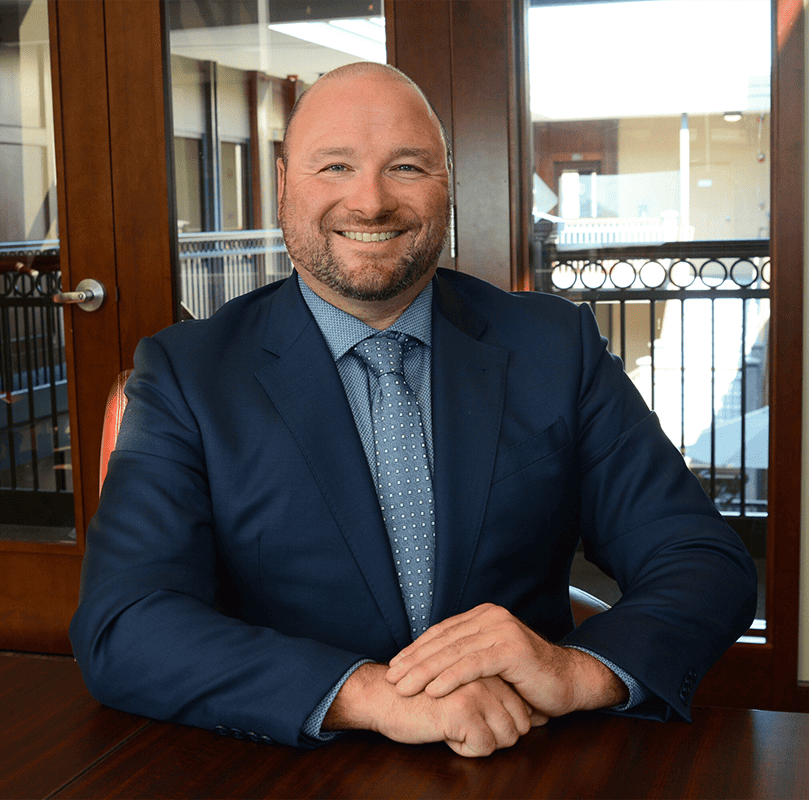Looking for info on Child Protective Services (CPS) custody in Washington State? You’re in the right place. This guide will give you a clear understanding of how CPS works, your role as a parent, and your rights.
CPS is a state agency that investigates child abuse and neglect cases. They put the child’s safety first, and work with parents to ensure the child’s well-being. In some cases, CPS may need to temporarily remove a child from their parents’ care.
We’ll walk you through the dependency case process. This is when CPS files a petition with the court about the child’s living situation and needed services. We’ll also talk about your duties as a parent, like raising your child, attending visits, and handling financial responsibilities.
Got any issues with CPS? We’ll cover that too, along with resources you can use.
And importantly, we’ll go over your rights as a parent. These include the right to be notified, to access CPS records, and to have an attorney in a child dependency case.
With this knowledge, you’ll be able to confidently navigate the CPS custody process in Washington State.
Table of Contents

Key Takeaways
- Child Protective Services (CPS) investigates reports of child abuse and neglect and prioritizes child safety.
- A dependency case is initiated when CPS files a dependency petition with the court, and the court process involves the CPS worker, mother, and father providing information to the court.
- Parents have responsibilities such as supporting and raising the child, attending visits and planning activities, being involved in the child’s life, fulfilling financial obligations, and completing court-ordered services.
- Complaints about CPS can be addressed through DCYF Constituent Relations and the Office of the Family and Children’s Ombudsman (OFCO), which investigates complaints and provides recommendations to improve the child welfare system.
The Role of Child Protective Services in Ensuring Child Safety
Child Protective Services (CPS) plays a crucial role in ensuring the safety of children who may be at risk of neglect or abuse. By investigating reports and prioritizing the well-being of the child, CPS works to ensure their safety and overall welfare. In cases where necessary, CPS has the authority to remove a child from their parents’ care to protect them from imminent danger.
When and Why CPS Gets Involved: Protecting Children from Neglect and Abuse
CPS often intervenes in neglect and abuse cases to safeguard children. It’s vital to recognize the signs of neglect and abuse for early intervention, and to report suspicions to CPS, who are essential in shielding children from harm. Neglect and abuse can significantly impact a child’s physical, emotional, and psychological health. As a compassionate person, you can help these children by providing a safe, nurturing environment. Offering a caring space is crucial for their healing and growth. By understanding child safety’s importance and taking action, you support the well-being and protection of vulnerable children.
Navigating the CPS Investigation Process
Are you facing a CPS investigation? It’s important to understand how these investigations are initiated and conducted. You have rights and responsibilities when collaborating with CPS, and addressing concerns and building a case plan is crucial. Additionally, knowing about the process of reunification and permanency planning can help support family reunification. Let’s explore these points in more detail.
How CPS Investigations are Initiated and Conducted
CPS investigations start with a report of suspected child abuse or neglect. This can be from a mandatory reporter or a concerned party. Following this, CPS uses standard procedures to verify the allegations, which include interviews with the child, parents, caregivers, and others. They also gather evidence like medical records, witness testimonies, and photographs. Legal and confidentiality aspects are considered to protect everyone’s rights and privacy. The findings of the investigation are documented as per CPS’s reporting requirements. It’s crucial to understand these processes when working with CPS. Now, let’s delve into your rights and responsibilities in dealing with CPS.
Collaborating with CPS: Your Rights and Responsibilities
In collaboration with CPS during an investigation, it’s crucial to be aware of your rights and duties as a parent. Key points include addressing any concerns directly with the CPS worker to ensure a fair process, working jointly on a case plan centered on your child’s safety and welfare, and understanding the potential for reunification and the support provided for it. Comprehending the emotional toll of the investigation on you and your child is key, as CPS provides resources and support to reduce trauma and help you effectively navigate this difficult time.
Addressing Concerns and Building a Case Plan
In the Washington State CPS investigation, addressing concerns and collaborating on a case plan is crucial to ensure your child’s safety. Open dialogue about issues with CPS helps in formulating a case plan tailored to your child and family’s needs. The plan may consist of supportive services like counseling, parent classes, or substance abuse treatment, addressing any problems and fostering healing and reunion. Consideration should be given to trauma prevention and culturally appropriate healing resources. Active participation in case planning aids in achieving the best outcome for your child.
Reunification and Permanency Planning: Supporting Family Reunification
In Washington State’s CPS investigation, active involvement and cooperation is crucial for family reunification. A case plan geared towards reunification can reduce trauma and foster healing. Key steps include active participation in all case aspects, commitment to the case plan tasks, and proactive measures to prevent future problems while ensuring a secure and nurturing environment for your child. Utilizing support services like counseling or parenting classes can bolster your skills and mitigate future risks. Remember, your active participation and adherence to expectations can lead to a positive outcome, with the ultimate aim of reuniting your family.
The Impact of CPS Involvement on Children and Families
When Child Protective Services (CPS) becomes involved in your family’s life, it can have a profound impact on both you and your children. Understanding the emotional and psychological effects on children, maintaining stability and minimizing trauma during CPS intervention, and accessing healing and recovery resources are crucial. Additionally, it is important to consider the long-term consequences of CPS involvement and the importance of support for your family’s well-being.
Understanding the Emotional and Psychological Effects on Children
CPS involvement can significantly increase emotional and psychological distress in children and families, with potential long-term impacts on their well-being. It’s important to understand this trauma to provide the right support. Key strategies include resilience building, therapeutic interventions, and strong support networks. Recognizing and addressing these effects on children’s mental health is essential to promote their overall well-being.
Maintaining Stability and Minimizing Trauma during CPS Intervention
Understanding the impact of CPS intervention on your family can aid in minimizing trauma and promoting stability. Applying trauma informed approaches, maintaining your child’s routine, and utilizing stability strategies can provide security during this difficult period. Trust building with CPS workers and other professionals is essential for effective communication and support. Support measures like therapy or counseling can help manage the emotional effects of CPS involvement. Co-planning with CPS and other service providers can address your family’s needs in a comprehensive way. By using trauma sensitive services, a healing and recovery environment can be created for your family. The subsequent section, ‘healing and recovery: resources for families’, offers further support and guidance.
Healing and Recovery: Resources for Families
After CPS involvement, it’s crucial to utilize resources and support services for your family’s healing and recovery. Consider these key resources:
- Family support: Seek out organizations offering counseling, education, and advocacy to families affected by CPS.
- Therapeutic resources: Therapy and counseling are essential for families and children dealing with trauma. Find therapists experienced in trauma-informed care and CPS cases.
- Parent involvement: Enhancing resilience and positive parenting aids healing. Attend parenting classes and workshops to learn effective coping strategies and strengthen your child relationships.
Remember, healing and recovery are a gradual process. Using the right resources and support, you can pave the way for a brighter family future.
Next, let’s discuss the long-term impacts of CPS involvement and the need for continuous support.
Long-Term Consequences and the Importance of Support
The significance of long-term support for families impacted by CPS involvement is immense, affecting their emotional health and overall stability. It’s vital to offer services like counseling, therapy, and community resources to aid these families in their healing journey and mitigate lasting trauma. Through trauma-informed care and cultural sensitivity, we foster an environment conducive to healing and resilience, enhancing the long-term well-being of children and parents. Prioritizing such support helps families establish a robust base for a promising future.
Balancing Parental Rights and Child Safety in CPS Cases
As a parent involved in a CPS case, it is crucial to understand the legal framework that governs parental rights and termination. Balancing parental rights with child safety is a delicate task, and advocating for your involvement and reunification with your child is essential. Meeting CPS standards and expectations in terms of parental responsibilities is crucial to strengthen your case and demonstrate your commitment to your child’s well-being.
Legal Framework: Understanding Parental Rights and Termination
In Child Protective Services (CPS) custody cases in Washington State, knowledge of the legal aspects concerning parental rights and termination process is crucial. This legal structure ensures due process and prioritizes the child’s welfare through court engagement, termination hearings, and reunification. Key considerations include parental rights to notice and legal representation when their child enters protective custody, and the court-ordered termination process which evaluates the child’s safety. The court’s role in determining the outcome of these cases is fundamental. Comprehending these legal elements can aid in navigating the CPS custody process and advocating for parental participation and reunification.
Advocating for Parental Involvement and Reunification
Advocacy for parental involvement and reunification in Washington State CPS cases necessitates prioritizing child safety and continuous parental engagement. This advocacy ensures parents’ voices are heard and rights recognized. Providing reunification support helps parents comprehend their responsibilities and aids in regaining child custody. The case plan, a joint effort between parent and CPS, addresses the reasons for the child’s removal and strategies for reunification. Lessening trauma and providing healing resources are crucial, aiding both parent and child in the reunification process. Acknowledging the long-term effects of CPS involvement and cultural considerations is vital for an effective, sensitive reunification process.
Parental Responsibilities: Meeting CPS Standards and Expectations
Balance parental rights with child safety by meeting the Child Protective Services (CPS) standards in Washington State. Address concerns, participate in case planning and the reunification process, and use trauma minimization techniques for your child’s welfare. Include cultural inputs in decision-making, keeping in mind the emotional toll the CPS system may have on your family. By fulfilling responsibilities and meeting CPS standards, you can establish a safe, healthy environment for your child.
Strengthening Families: Prevention and Support
Prioritize your child’s safety and collaboratively work with CPS to balance your parental rights and their well-being. Strengthen families by using prevention strategies, leveraging community resources, and adopting a trauma-informed, culturally sensitive approach. Ensure your involvement in decision-making and reunification services, remembering your parental rights. During this difficult time, it’s vital to build a robust support network with local organizations and individuals for guidance, emotional support, and practical assistance. By using these resources in collaboration with CPS, a safe and nurturing environment for your child can be created.
Cultural Considerations in CPS Custody Cases
When it comes to CPS custody cases, it is crucial to consider cultural competence, recognizing and respecting diversity. It is important to address bias and disproportionality in CPS interventions to ensure fair and equitable treatment for all families. Collaborating with community and cultural organizations can provide valuable insights and support to better understand and meet the needs of diverse families. Additionally, providing language access and support for non-English speaking families is essential for effective communication and engagement in the CPS process.
Cultural Competence: Recognizing and Respecting Diversity
In all Washington State CPS custody cases, cultural competence is key for respecting and understanding the diversity of those involved. It ensures the recognition of everyone’s rights and needs. CPS can better navigate diverse perspectives by promoting inclusivity and incorporating inclusive methods. Important elements include: cultural sensitivity to respect unique backgrounds; multicultural awareness of various cultural practices, beliefs, and values; and cross-cultural understanding to bridge cultural gaps. By respecting cultural differences and applying cultural competence, CPS can establish a more effective, inclusive system to serve the community’s diverse needs.
Addressing Bias and Disproportionality in CPS Interventions
To rectify bias and disproportionality in CPS interventions, we must acknowledge cultural factors in Washington State custody cases. Recognizing and challenging preconceived notions is vital, just as addressing racial disparities to ensure fairness for all families. Promoting equity requires cultural sensitivity, understanding diverse community values, and implementing inclusive practices. Dismantling discriminatory practices within the CPS system is necessary to address systemic issues. Incorporating these strategies can lead to a fairer child welfare system. Collaboration with community and cultural organizations is also important for enhancing cultural competence in CPS cases.
Collaborating with Community and Cultural Organizations
Partnering with community and cultural organizations in Washington State can ensure cultural considerations in CPS custody cases. This partnership includes engaging with groups advocating for cultural awareness and diversity. Through initiatives like resource coordination and community involvement, the collaboration fosters understanding and respect for the unique cultural needs and values of the families involved. This approach promotes fair outcomes for families of all cultural backgrounds, creating an inclusive, culturally sensitive child welfare system that supports the well-being of children and families in the state.
Language Access and Support for Non-English Speaking Families
Providing language access services and resources is essential for effective communication with non-English speaking families in CPS custody cases. Overcoming language barriers with the help of interpretation services can facilitate clear communication between families and CPS workers. This not only helps non-English speaking families understand their rights and responsibilities but also bridges the communication gap. Incorporating cultural sensitivity when dealing with these families can foster a supportive and inclusive environment. Thus, through communication support and language access, CPS can efficiently cater to the needs of non-English speaking families throughout the custody proceedings.

The Emotional Toll of CPS Custody Cases
Navigating the emotional toll of CPS custody cases can be incredibly challenging. Coping with stress and anxiety during CPS investigations, processing the grief and loss associated with separation and removal, and seeking professional help through therapy and counseling are crucial steps in managing the emotional impact of these cases. Taking care of yourself and building resilience in the face of adversity is essential for your well-being throughout the process.
Coping with Stress and Anxiety during CPS Investigations
Coping with stress and anxiety is crucial during CPS investigations. Prioritize your emotional health by employing strategies like seeking support from trusted individuals or groups, engaging in self-care activities, and utilizing anxiety management techniques like deep breathing or mindfulness. Building resilience is key in dealing with challenging situations. If you’re overwhelmed, consider therapy or professional help. It’s vital to maintain your mental and emotional health in these times.
Navigating Grief and Loss: Processing Separation and Removal
Coping with grief and loss in CPS custody cases can be tough. Remember, you’re not alone. There are coping mechanisms and support groups to assist during this difficult period. Therapeutic interventions like grief counseling offer a secure environment for emotional recovery. Experiencing emotions such as sadness, anger, and confusion is normal. Understanding loss and attachment can help you comprehend your feelings. Trauma-informed care is vital in your healing journey. Exploring coping methods and seeking professional therapy or counseling is important for your emotional health. Let’s now delve into the significance of professional help in CPS custody cases.
Seeking Professional Help: Therapy and Counseling Options
Therapy and counseling are critical support systems during emotionally taxing CPS custody cases. They play a significant role in facing difficulties and fostering emotional recovery. Various therapeutic options and counseling resources available include mental health support to safely express and manage emotions, specialized interventions from trauma-trained therapists, and learning effective coping strategies for stress and anxiety. Seeking such professional help is a positive step towards emotional health, with these experts guiding you through the challenges of CPS custody cases.
Self-Care and Building Resilience in the Face of Adversity
To successfully handle the emotional strain of CPS custody cases, it’s essential to focus on self-care and resilience. During such tough times, maintaining emotional health is critical. Implement self-care methods like engaging in activities you enjoy or that relax you, such as exercising, meditating, or pursuing hobbies. Also, build resilience by developing coping skills to rebound from adversity and withstand challenges. Lean on trusted friends, family, or support groups for assistance during this tough period. Practicing self-reflection can offer valuable insights into your emotions and thoughts. Prioritize stress management techniques like deep breathing or journaling to reduce anxiety and retain calmness. Remember, self-care is crucial for successfully managing this emotional journey.
Frequently Asked Questions
How Long Does a CPS Investigation Typically Take in Washington State?
Factors influencing the duration of CPS investigations in Washington State include the complexity of the case, the availability of evidence and witnesses, and the caseload of CPS workers. CPS caseworkers play a crucial role in gathering information, interviewing involved parties, and assessing the safety of the child. False allegations can have serious consequences, as they divert resources from genuine cases and can harm innocent families. It is important to have legal representation during CPS investigations to ensure your rights are protected. Support services are available to families during investigations to provide assistance and guidance. The impact of a CPS investigation on a child’s emotional well-being should not be underestimated, and it is important to provide them with support and reassurance throughout the process.
Can CPS Remove a Child From Their Home Without a Court Order?
Yes, CPS can remove a child from their home without a court order in cases of emergency. This is called emergency removal. CPS has the authority to place the child in temporary care until the court can intervene. However, due process is still followed, and parental rights are considered. CPS must assess the safety of the home before returning the child. For more information, refer to Understanding Child Protective Services (CPS) Custody in Washington State: A Comprehensive Guide.
What Rights Do Parents Have During a Dependency Court Case?
During a dependency court case, as a parent, you have important rights. You have the right to legal representation, ensuring you have a lawyer to guide you through the court process. You also have the right to present evidence and be involved in decisions about your child’s future. Reunification services may be offered to help you regain custody. You have visitation rights to maintain a relationship with your child. It’s important to note that in extreme cases, termination of parental rights may occur if it is determined to be in the best interest of the child.
How Can Parents Access Their CPS Records After the Case Is Closed?
To access your CPS records after the case is closed, you have the right to request them. You can exercise your privacy rights and freedom of information by submitting a record request. This process allows you to obtain post-case information and gain a better understanding of your parental rights. It’s important to know that closed case information is accessible, and by following the record request process, you can obtain the records you need for your records or legal purposes.
Are There Any Resources Available for Parents Who Cannot Afford an Attorney During a CPS Case in Washington State?
If you cannot afford an attorney during a CPS case in Washington State, there are resources available to help you. You can seek free legal aid from community resources, pro bono lawyers, self-help clinics, legal aid organizations, and family law clinics. There are also legal assistance programs that can provide support and guidance. These resources aim to assist individuals who may be facing financial difficulties but still need legal representation in CPS cases.
Conclusion
In conclusion, understanding the CPS custody process in Washington State is crucial for parents who may find themselves involved with Child Protective Services. By knowing your rights, responsibilities, and the steps involved in the investigation process, you can navigate this challenging situation with confidence and advocate for the well-being of your child. Remember, CPS prioritizes child safety while also working with parents to ensure a positive outcome for the family.







